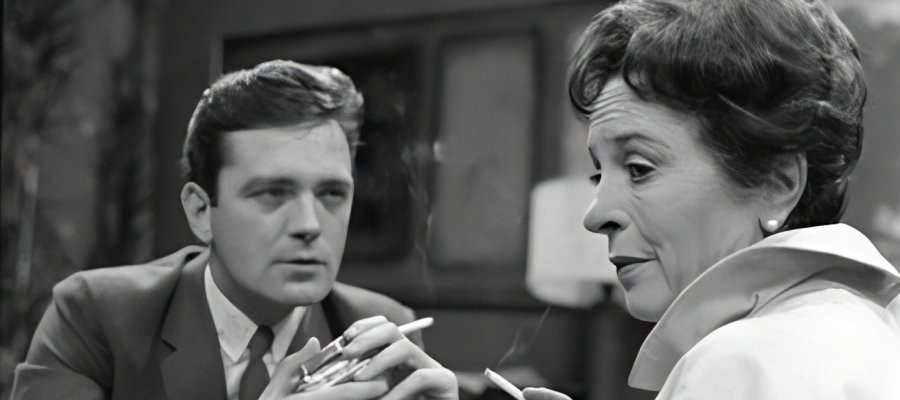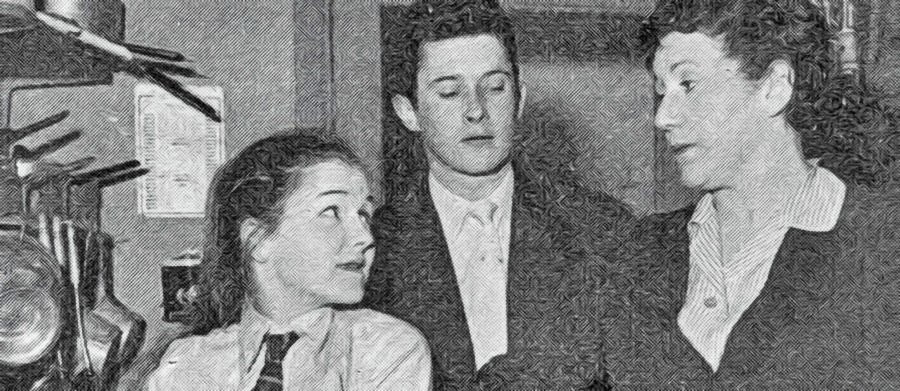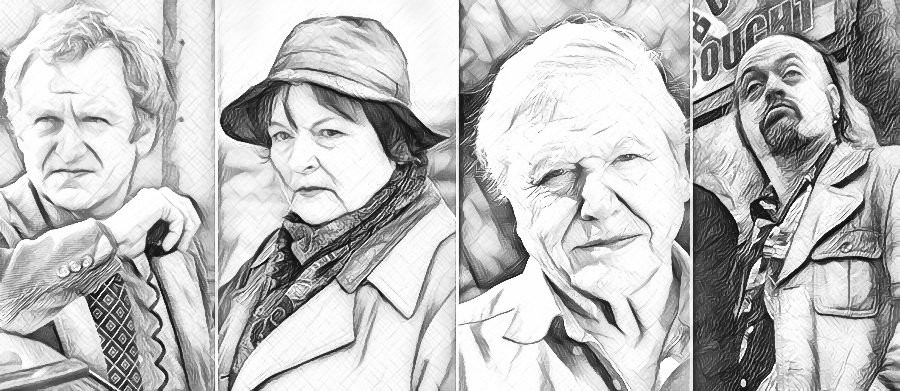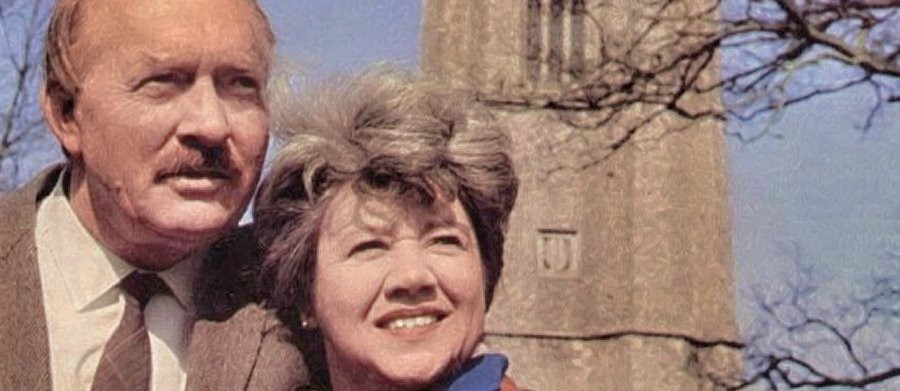
Weavers Green
1966 - United KingdomIn 1966, Anglia Television launched Britain's first rural twice-weekly soap opera, which was based around a fictional vets' practice in an East Anglian village. Something of a cross between All Creatures Great and Small and Emmerdale Farm (both of which would appear many years later), Weavers Green was notable for being one of the first British television shows to be shot on location using video, rather than film. Unfortunately, the series was short lived (only 49 episodes were made) due to ITV's refusal to properly network it.
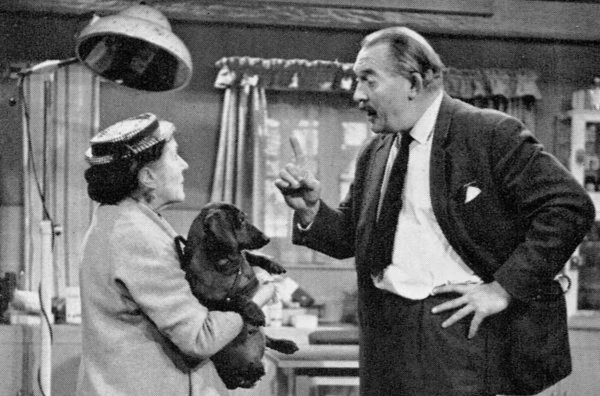
Weavers Green was the creation of husband and wife team Peter and Betty Lambda, who after 30 episodes were succeeded by Troy and Ian Kennedy Martin writing under the pseudonym of Tony Marsh. To ensure authenticity, the writers interviewed vets, farmers, agricultural machinery salesmen and even a poacher, before fleshing out the characters that populated the series.
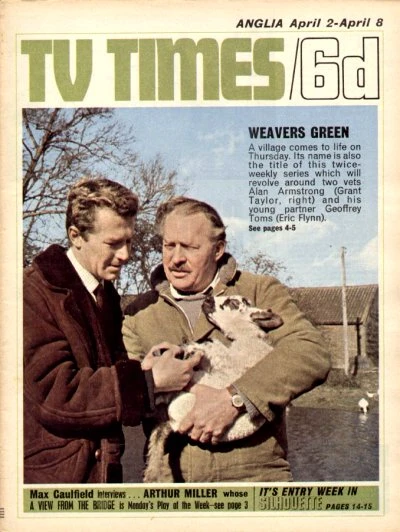
The village of Heydon, north of Reepham with its post office, church, local pubs and shops was used for the main outside filming, and County School railway station serving the villages of North Elmham and Guist was also used for some scenes. But the cost of filming - £250,000 made the series one of the most expensive to date. Nevertheless, Weavers Green was launched in the first week of April 1966 in a blaze of publicity and optimism.
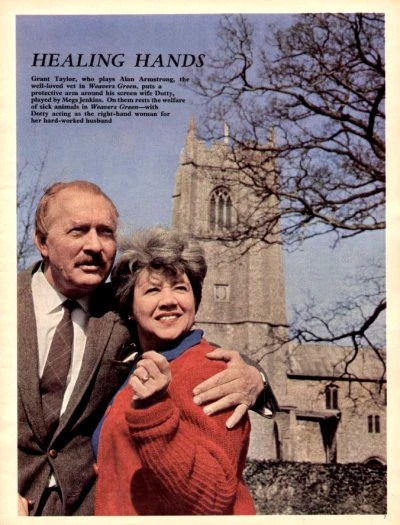
The serial revolved around local vet Alan Armstrong (Grant Taylor) and his wife Dotty (Megs Jenkins) and their interaction with the local community; farmers and villagers. Other main characters included fellow vet Geoffrey Toms (Eric Flynn), recently arrived from London with his wife Celia (Georgina Ward), local farmer Jack Royston (Richard Coleman) and local poacher Daniel Jessop. The back-story for Jessop is an indication of how well the characters were fleshed out: ‘Once a wheelwright, a crafty old countryman, a dab hand at all sorts of jobs, never settles down, very independent. He does what he wants to do and always has an excellent excuse for not turning up or being late for a job. Daniel likes his pint, and can tell an ingratiating yarn to get a free pint out of visitors to The Fat Ox, the Weavers Green pub. Not over fond of people, and there's a guarded relationship between him and local bobby PC Moneypenny. Moneypenny knows he poaches, and Daniel knows he knows.”
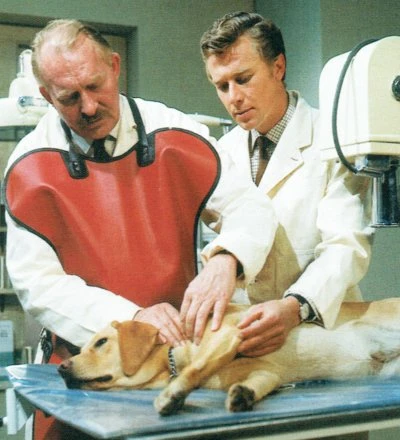
56-year-old former actor turned television producer - and then turned actor again, John Glyn-Jones, who played Jessop, also explained in a TV Times article (1966), how he regularly prepared for the role: "I'm Welsh born, from farming stock, but I lived in Norfolk so many years I think I can do a passable East Anglian accent. When I get my script, Ted, my gardener, who is a Norfolk man, comes in for his 'elevenses' and his 'fourses' and we go over it so that he can advise me on the words and phrases to use. We talk them over then I check with the producer. The dialect mustn't be so way out that nobody can understand them."
Even at the filming stage, changes could be made. According to series director Raymond Menmuir, whilst filming one scene with Eric Flynn, an onlooker, who turned out to be a real vet, said the scene was perfect except for one detail. "Eric Flynn's bag is too new," he said. "It would look better if it was old and worn." Menmuir offered to do a swap with the real vet's bag. The deal was done and afterwards the vet was asked "Don't you think you will look better with a new bag?"
"No," he said. "You see I'm a real vet, so I don't have to look authentic."
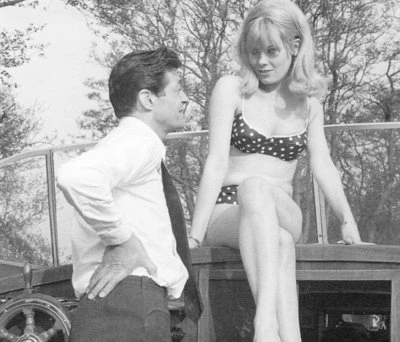
Also among the 1966 cast were some names that would become very familiar within the next few years. Kate O'Mara, Wendy Richard and Susan George all played local lasses whilst Maurice Kaufman and John Moulder-Brown were local lads. Dennis Waterman also appeared in one episode. Unlike many ITV series of the 1960s, Weavers Green survives intact in the archives.
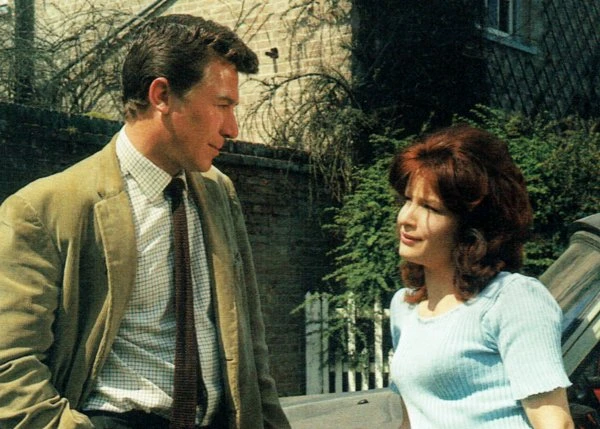
Initially, Weavers Green was broadcast on Saturdays and Thursdays. The Thursday episodes, which went out at 7pm received very favourable ratings, but ITV’s insistence on showing the Saturday episodes at 5.50pm meant that it was directly up against Doctor Who on the BBC (followed by Dixon of Dock Green) and as a result suffered greatly. Anglia wanted a better timeslot for the Saturday episode, but in the 1960s independent television was dominated by the 'big four' regional companies: ATV, ABC, Granada and Associated Rediffusion, who produced the majority of programmes for the ITV network, and Anglia were seen, in comparison as ‘small fry’ even though they consistently produced high quality programmes. Anglia argued, reasonably, that the high ratings of the weekday episodes would only be matched by a peak-time weekend slot. The network refused to budge. Anglia accused the network of bullying and in response the network announced in June 1966 that Weavers Green would end in September. Just to rub salt into Anglia’s wounds, in August ITV rescheduled the series to Mondays and Thursdays. By that time though, a number of regions had dropped it from their schedules altogether.
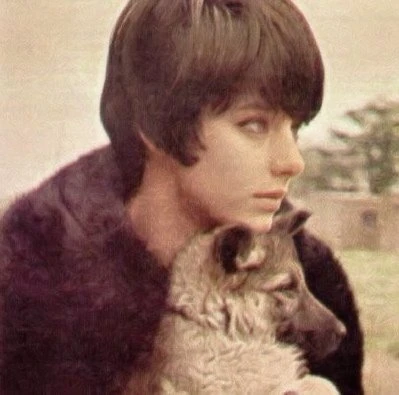
Six years after Weavers Green came off the air, a new countryside soap, Emmerdale Farm, was given two weekday slots. Today, as simply Emmerdale, it is one of the country’s top-rated shows. Was there any acrimony and bitterness from Anglia? When Emmerdale Farm began in 1972 Anglia bosses were quick to spot similarities. In the 1980s, when Emmerdale moved from daytime to peak time, Anglia left it exactly where it was – daytime.
Seen this show? How do you rate it?
Seen this show? How do you rate it?
Published on January 28th, 2021. Written by Laurence Marcus for Television Heaven.







